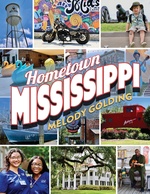The Enduring Riddle of Mackenzie King
The Enduring Riddle of Mackenzie King assembles a who’s who of political historians to untangle the legacy of Canada’s longest-serving, most controversial, and possibly greatest prime minister.
Research with Refugee Children and Families
Ethical Dilemmas and Methodological Insights
Autism and the Culture of Therapy
The Politics and Practice of Applied Behaviour Analysis
Autism and the Culture of Therapy investigates the larger systems that regulate applied behaviour therapies, their negotiation and application by practitioners and parents, and how they have redefined what autism means.
Vestiges of the Three Kingdoms of Ancient Korea
A Translation of the Samguk yusa
Gathered into a Church
Indigenous-English Congregationalism in Woodland New England
Enemies to Their Country
The Marblehead Addressers and Consensus in the American Revolution
Beyond the Sewol
Activist Theatre and Performance in South Korea and the Diaspora
A Forest of Dreams
Capitalism, Conservation, and Indigenous Rights in the Philippines
Puffballs, Earthstars, Stinkhorns, and Other Gasteroid Fungi of Eastern North America
The Texas Civil Rights Project
How We Built a Social Justice Movement
Too Fast, Too Short
The Life of Diana Barrymore
A stunning sketch of the life and career of the little-known American actress and socialite
To Absent Friends
Eudora Welty's Correspondence with Frank Lyell
A thoughtful compilation that chronicles a nearly fifty-year friendship with the renowned Mississippi writer
The Gulf of Mexico Research Initiative
A Vision for Twenty-First-Century Science
A thorough assessment of the Gulf of Mexico Research Initiative and the scientific legacy it left behind
Steve McQueen
Interviews
The first collection of conversations with the acclaimed filmmaker, and one that spans his career to date
Planting Thistles
Scottish Islander Colonization in Late Victorian Canada
Planting Thistles explores how state-sponsored settlement of Scottish Islanders in Western Canada at the height of Victorian imperialism brought core conceptions of race, class, gender, and modernity itself into question.
Pablo Neruda's Ship Figureheads
A Poet-Collector's Muses and Companions
Pablo Neruda's Ship Figureheads
A Poet-Collector's Muses and Companions
Mega Pipelines, Mega Resistance
Tar Sands, Social Movements, and the Politics of Energy Infrastructure
Mega Pipelines, Mega Resistance reveals how and why social movements have frustrated major pipeline development in North America.
Hometown Mississippi
A vibrant portrait of thirty Mississippi towns, blending photography with personal narratives, to explore the unique identities that define the state
Conversations with Kiese Laymon
An in-depth look at author Kiese Laymon as an educator, creative writer, activist, family member, and Mississippian
Conversations with Jesmyn Ward
Collected interviews with the recipient of numerous major literary awards and fellowships, including two National Book Awards, for Salvage the Bones and Sing, Unburied, Sing
Comics and Catharsis
Exploring Graphic Narratives of Trauma and Healing
An exploration of why comics are so good at confronting the bad
Chrétien and the World
Canadian Foreign Policy from 1993 to 2003
Chrétien and the World, the first book-length study of the former prime minister’s foreign policy, reveals a far more ambitious, coherent engagement in international affairs than has been understood to date.
Women March for Peace
Black Radical Women’s Anti-Korean War Activism
Unpacking My Father's Bookstore
Unpacking My Father’s Bookstore brings to life the history of J. Roth / Bookseller of Fine & Scholarly Judaica, which was a microcosm of the Los Angeles Jewish community from 1966 to 1994 and one of the premier Jewish bookstores in the United States.
The Nursing Clio Reader
Histories of Sex, Reproduction, and Justice
A powerful resource for classrooms and individual readers alike, The Nursing Clio Reader invites reflection on how the past informs current debates, urging us to engage deeply with the history of reproductive justice in a time of unprecedented change.
















